|
My boyfriend went to Erzurum city by plane yesterday, for a medical-student-organisation. I just 'wikipediad' the province and thought I'd copy-paste it here for other people interested.
Erzurum Province
From Wikipedia, the free encyclopedia
Erzurum (or Erzerum, Arzen in antiquity, Karin in ancient Armenian, Theodosiupolis or Theodosiopolis during Byzantine rule) is one of the Provinces of Turkey, in the Eastern Anatolia Region, to the east of the country. It is surrounded by Kars and Ağrı to the east, Muş and Bingöl to the south, Erzincan and Bayburt to the west, Rize and Artvin to the north and Ardahan to the northeast.
Geography
The surface area of Erzurum is the fourth biggest in Turkey. The majority of the province is elevated. Most plateaus are about 2,000 m (6,500 ft) high from sea level, and the mountainous regions beyond the plateaus are 3,000 m (9,800 ft) and higher. Depression plains are located between the mountains and plateaus. The southern mountain ranges are Palandöken Mountains (highest peak Büyük Ejder 3,176 m high) and Şahveled Mountains (highest peak Çakmak Mountain 3,063 m high). The northern mountain ranges are the second row elevations of the North Anatolian Mountains, i.e. Mescit Mountains (highest peak 3,239 m), Kargapazarı Mountains (highest peak 3,169 m) and Allahuekber Mountains. The two depression plains between these mountainous areas are Erzurum Plains and Hasankale Plains.
Continental climate rules in the province with long and harsh winters, and short and mild summers. The lowest temperature average is -8.6 °C (16 °F) and the highest average temperature is 19.6 °C (67 °F). Yearly average precipitation is 453 mm. Snow falls for 50 days and stays for about 114 days.
Steppe formations are prevalent in the geography, occupying about 60% of the surface area, much of it fertile. Forest areas are not large mainly consisting of scots pines and oaks.
Eastern part of the province is in the basin of the Araks river (Aras), the western part in the Karasu (Western Euphrates) basin, and the northern part in the Çoruh basin.
There are a few natural lakes in the province, the major one being Lake Tortum (approximately 8 km²) fed by the Tortum (Uzundere) Falls. A hydroelectric power plant built in 1963 is on the inlet of this lake. There are three artificial lakes in the province.
History
The region is known to have been inhabited since the Hittites. The city comprises one of the historical regions of Armenia and a vibrant Armenian community dominated the area until the Armenian Genocide of 1915. Most of the province was incorporated to the Roman Empire in 4th Century who founded a city called Erzen. The Byzantine Empire also built a city in the region, called Theodosiupolis, which was on the border. Standing on the crossroads of main trade routes in Asia Minor, the area was a center of importance for Persians and Arabs who frequently clashed with the Byzantine Empire. The city was also part of the Armenian kingdom of Tayk in the 10th century. Threatened by, devastated and looted by the Seljuk Turks in 1049, the older city of Erzen was conquered, but Theodosiupolis survived the invasion.
Theodosiupolis resisted many attacks and military campaigns by Seljuks and Georgians until 1201 when the city and the province was conquered by the Seljuk sultan Süleiman II of Rüm in 1201. Erzen-Erzurum fell to the Mongol siege in 1242, and the city was looted and devastated. After the fall of the Seljuk Sultanate of Anatolia (Rüm) in early 14th Century, it became an administrative province of the Ilkhanates, and after their fall, became part of the Çoban beylik, Black Sheep Turkmen, Mongols lead by Timur Lenk and White Sheep Turkmen. Finally, in 1514 the region was conquered by the Ottoman Sultan Suleiman the Magnificent.
During the Ottoman reign, the city served as the main base of Ottoman military power in the region. Early in 1600s, the province was threatened by Iran and a revolt by the province governor Abaza Mehmed Pasha. This revolt was combined with Jelali Revolts (the uprising of the provincial musketeers called the Celali), backed by Iran and lasted until 1628.
The city was conquered by the Russian army in 1829, given back to the Ottoman Empire with the Treaty of Adrianople (Edirne). The poet Alexander Pushkin accompanied the Russian commander-in-chief, Ivan Paskevich, during that expedition and penned a brief account of the campaign. The city was again assaulted by the Russian army in the last Russo-Turkish War in 1877. It was attacked again during World War I in 1916 by armies under the command of Grand Duke Nicholas , this time to be conquered. It was returned to the Ottomans with the Treaty of Brest-Litovsk in 1918. Erzurum was also a main Turkish base during the Turkish War of Independence. It was declared a province of Turkey in 1924.
Economy
Approximately 18.5 % of the total surface area is arable land, of which about 75 % has permanent crops. A large portion of the agricultural produce consists of cereals. Forest areas are a total of 8.8 % of the surface area, and forestry is also an industry. Industries largely consist of manufacturing of forestry, agriculture, husbandry, chemistry, textile and mining products. There are 81 active industrial plants in the province, most of them located at the central district Erzurum, and are small and medium enterprises. Due to their relatively small sizes, these industries serve mainly to local markets causing lower capacity usage, low productivity and unemployment. About 40 plants are currently out of use, mostly due to high operation costs.
Erzurum has the highest ratio of meadows and pastures in Turkey, ideal for stockbreeding. However, once the main occupation of the population, animal husbandry lost its importance in 1980s with the introduction of liberal economy and importation. A large organized industrial park concentrating on processing meat is being built with the hopes of reviving this sector. Food products include beekeeping and trout farming too.
Underground resources include lead, copper, chromium, and zinc which are of low tenure or have their reserves almost exhausted. There is considerable amount of lignite, however because its ash and sulfur ratios are high, it only has industrial use. Magnesite, fire clay, gypsum, manganese, diatomite, marble, rock salt and perlite are also present. The few natural geothermal resources, except one, are not suitable for economic investments, and they are used as natural springs.
GDP in Erzurum is USD 1.16 billion, constituting less than 1 % of the total and ranking 40th among Turkish provinces (1997 values).
Transportation is possible through paved and unpaved highways. The Erzurum international airport is open to use also to the Turkish Air Forces. The runways of this airport are the second longest in Turkey. Erzurum is also the main railroad hub in the Eastern Anatolia region.
The largest economy, in recent years, has been the university. Atatürk University is one of the largest universities in Turkey, having more than forty-thousand students. Tourism, also, provides a large proportion of the province's income. Tourist activities include skiing, rafting and mountaineering. Skiing activties are centred on Palandöken Mountain.
Statistics
The province has a surface area of 25,066 km², and a population of 937,389 (2000 census). This translates to a population density of 37.4 per km². The province center has a population of 361,235. Females: 45 %, males 55 %.

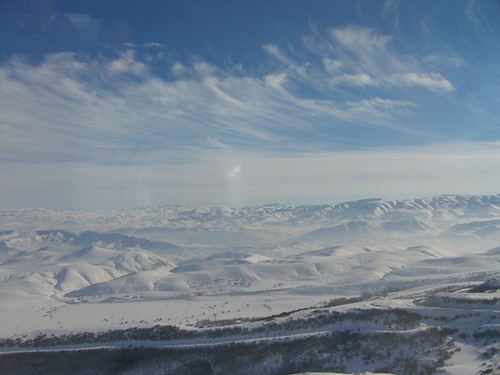
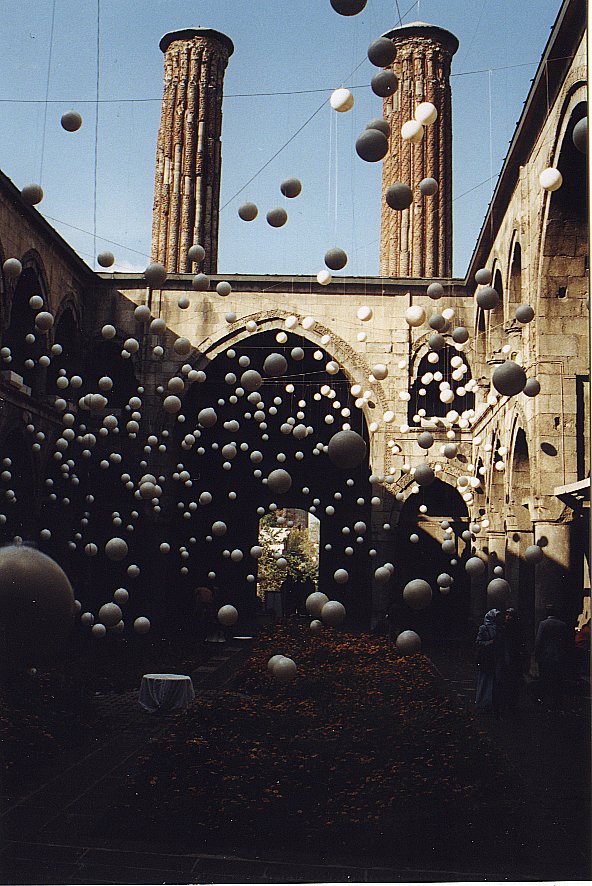
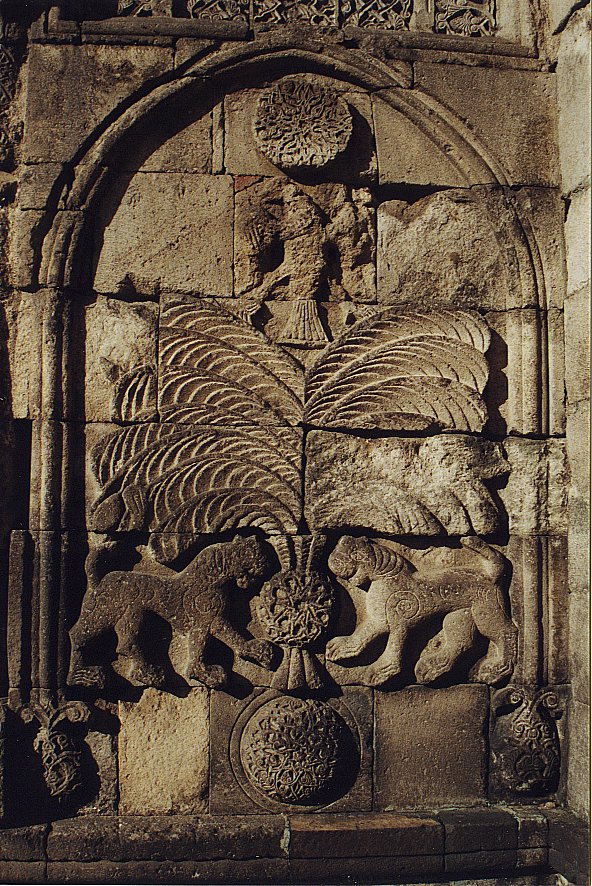
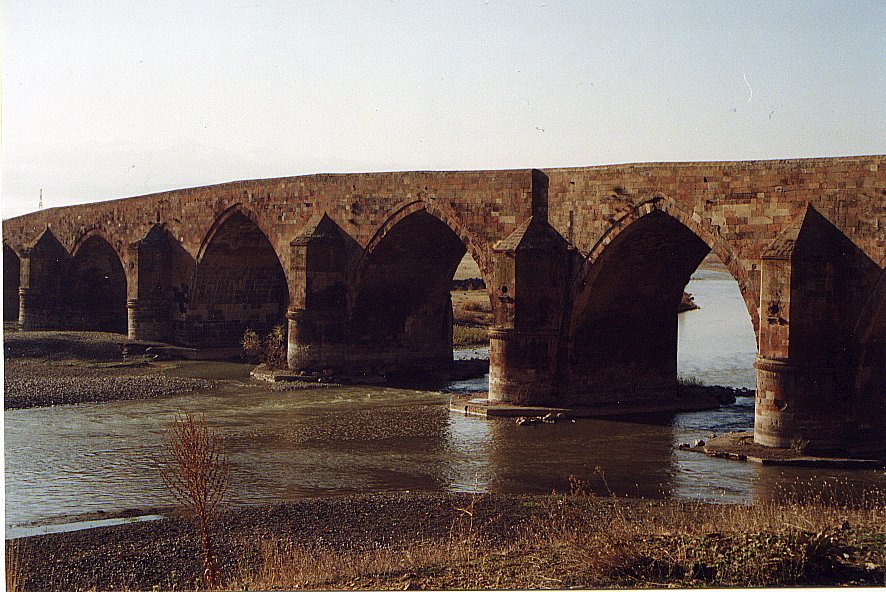
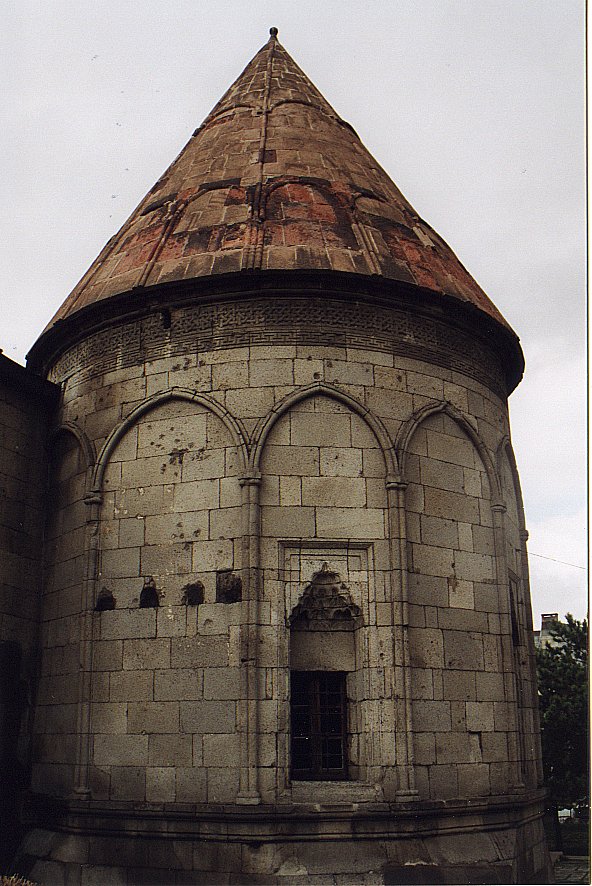

|

